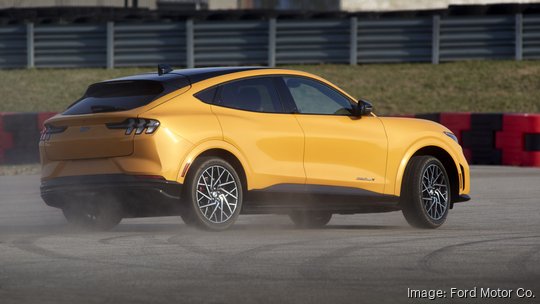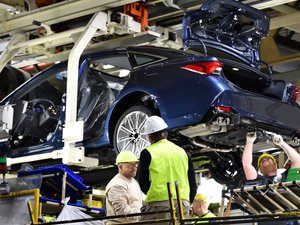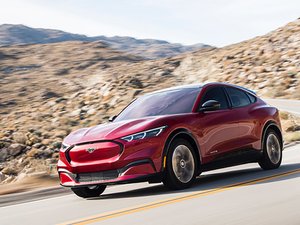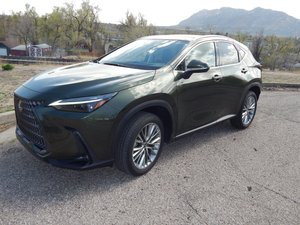
The state of Kentucky — seeking to bolster its self-proclaimed titled of as a national leader in electric vehicle (EV) — has announced a new initiative to boost its network of chargers.
Gov. Andy Beshear today announced that the state is seeking proposals from private-sector organizations interested in helping the state expand its electric vehicle charging network.
Y'all cue up Metallica's "Ride the Lighting."
The Kentucky Transportation Cabinet (KYTC) issued a final Request for Proposals (RFP) today to build up to 37 stations along Kentucky interstates and parkways after receiving approval from the Federal Highway Administration.
"Kentucky is the electric vehicle battery production capital of the United States of America, and we are leading the industry expansion by growing jobs and building out the supply chain," Beshear said in a news release. “This RFP and the proposals it will generate will further cement Kentucky’s status in the EV revolution by creating new infrastructure that encourages EV travel throughout the commonwealth.”
I can't tell you exactly how many electric vehicle batteries Kentucky is producing today. But the number is expected to jump dramatically in the coming years. That's as BlueOval SK, a joint venture between Ford Motor Co. and SK On, is building two electric vehicle battery manufacturing plants at a mega site in Glendale, Kentucky. The two plants, which represent a $5.8 billion investment, are to power Ford EVs for years to come. This project, announced in 2021, has been called the largest economic development project in Kentucky's history.
Since Gov. Beshear took office, the state has seen about 20 EV-related announcements accounting for around $11.2 billion in planned investments and more than 10,800 new full-time jobs created (with the Glendale project accounting for about 5,000).
In April 2022, the Governor was joined by leadership at AESC to announce a $2 billion investment that will create 2,000 jobs in Warren County. These announcements solidified Kentucky as the EV battery production capital of the U.S. In March 2023, the Governor announced that EnerVenue is building a third battery factory in Shelbyville with a $264 million investment. Then in April 2023, EV-maker Rivian announced it will invest $10 million to establish a remanufacturing facility in Bullitt County, creating 218 full-time, quality jobs.
Most of the funding for vehicle battery charging network will come from federal formula funds, made possible by the Bipartisan Infrastructure Law, with a match by private-entity funds. Proposals are due in August, the news release said.
The EV Charging Program RFP encourages proposals from private-sector entities. Selected parties will be responsible for constructing, owning, operating and maintaining new EV charging stations across the state.
“Feedback from the industry and interested investors has been key to helping us craft a process that will help us be successful, so no time is wasted standing up fast chargers statewide,” KYTC Secretary Jim Gray said in the release. “We’re hopeful the RFP will attract multiple proposers with proven knowledge and experience.”
RFP Details
To view the RFP and to learn more about the program, visit EVCharging.ky.gov.
A draft RFP was initially released to solicit feedback from potential proposers on the selection method and process and to allow for coordination with subcontractors and site hosts, the release said. More than 150 individual comments were received and used to refine the final RFP. KYTC and its agency partners also hosted a networking event for private sector developers interested in partnering with small, local and disadvantaged firms to participate in building out Kentucky’s EV charging network by submitting to the RFP.
KYTC is responsible for overseeing program implementation and administering nearly $70 million in federal National Electric Vehicle Infrastructure, or NEVI, funds. Candidates will be selected on a site-by-site basis to receive a portion of KYTC’s allocation. The goal is to fund up to 37 EV charging stations through this and future RFPs to begin to build the network on Kentucky’s 11 interstates and eight parkways. The EV stations must be open to the public 24 hours a day, seven days a week and power any non-proprietary electric vehicle model.
Firms selected to develop one or more sites within the statewide network will be required by contract to operate and maintain the stations during the five-year funding period.
The federal administration requires that charging stations be installed first on the interstates and parkways, which are designated Alternative Fuel Corridors. Once those stations are in place, KYTC’s selected firms can proceed to deploy chargers on other high-priority EV corridors and in communities around the state. Other funding sources, such as the Charging and Fueling Infrastructure Discretionary Grant Program, also are available to assist with building stations on other highways and in other Kentucky communities.










